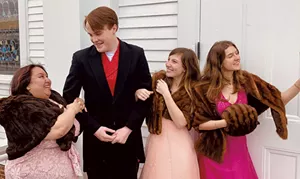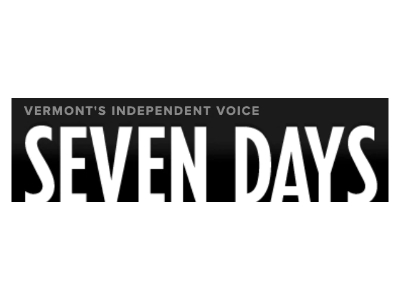
What can high school students do if they love both acting and classical singing? Typically, such teenagers are forced to choose between their talents, according to soprano Sarah Cullins. “Either you focus on your classical voice and only sing in choir,” she said, “or you sacrifice your technique and do musical theater.” A Burlington native, Cullins studied vocal performance in the Tufts University/New England Conservatory of Music double degree program and at the Mannes School of Music. Now, she offers a third option to students: opera, which demands high levels of both acting and classical singing. Operatic voice training alone requires supreme breath support, diction and the ability to sing in many languages. Given that most students are unfamiliar with the art form, Cullins has developed an informal network of chorus and voice teachers around northern Vermont who refer their most talented singer-actors to her. In turn, Cullins invites the teens to participate in the nonprofit she founded, the Youth Opera Company of Vermont. This weekend, the YOC shows off its accomplishments with an abridged act from Johann Strauss II’s Die Fledermaus, which the company is calling “Orlofsky’s Ball.” The showcase act features arias, or solo songs, by all nine company singers, as well as plenty of Viennese waltz-inspired choral singing. Performances — sung in English with repeat verses in German — are at the Charlotte and Waterbury Congregational churches this Saturday and Sunday, April 30 and May 1, respectively. At a rehearsal last Wednesday evening at Rice Memorial High School in Burlington, eight of the nine students, fully masked, did a walk- and sing-through of the show to Evan Allen’s piano accompaniment. (Mary Jane Austin is the accompanist at performances.) Their casual attire, including torn jeans and vintage finds, contrasted with their mature-sounding voices. Cullins paused to coach the group on 19th-century acting. “I want you to practice ridiculous bows,” she told Rice sophomores Connor Trombly (singing Eisenstein disguised as a marquis) and Gabe Thompson (Frank, a prison governor passing as a chevalier). Cullins then directed Count Orlofsky, sung by Montpelier’s U-32 High School senior George Lane, to look over his guests with a host’s eye. Lane, who is nonbinary, is singing a “trouser role” — a male role performed by a singer with a traditionally feminine voice. Strauss wrote it for a mezzo voice. Lane, who has also sung the trouser role of Cherubino in Wolfgang…
Teen Performers Discover the Key to Success in Youth Opera Company

